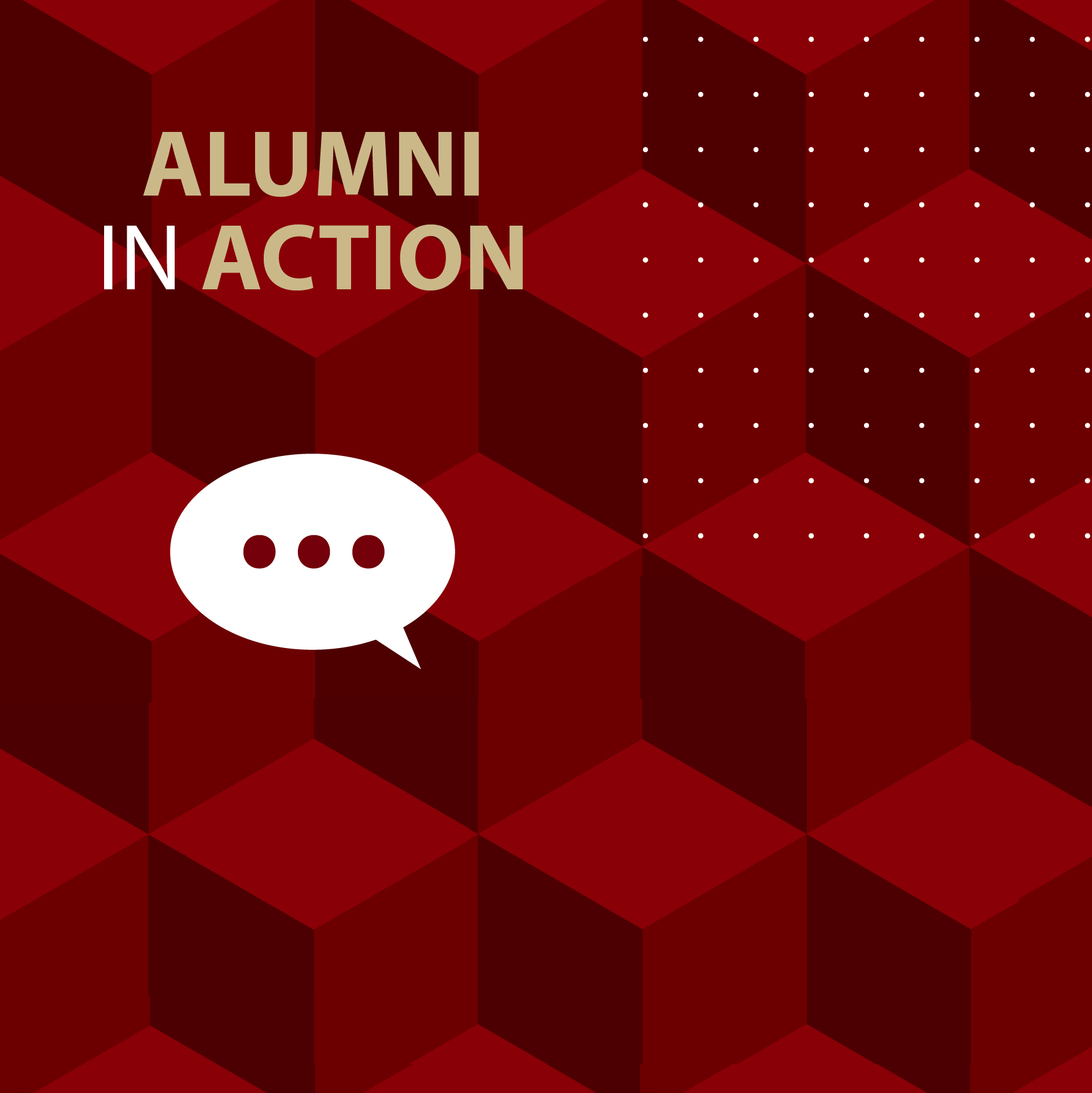Patrick O'Malley '96, Kristin Kosta '11 and Assistant Professor of Public Health Studies Katherine Johnson spoke with President Connie Ledoux Book as part of a video series highlighting alumni working on the front lines of the pandemic.
Elon University President Connie Ledoux Book led a discussion Friday with alumni and faculty in public health around how COVID-19 is changing our understanding of health, health care and public policy on a global scale.
“A few weeks ago, no one knew what the word ‘epidemiologist’ was. Now everyone’s an armchair epidemiologist,” said Kristin Kostka ’11, who as associate director of IQVIA in Massachusetts is part of a global community analyzing health care data from billions of patients to track trends and outcomes in the pandemic.
She was joined by Patrick O’Malley ’96, an emergency physician at Newberry County Medical Center in South Carolina, and Assistant Professor of Public Health Studies Katherine Johnson, who teaches the Preventing Pandemics course and researches public health education and policy.
“We’re running a lot of studies to understand what’s happening to patients being treated, what different subgroups are experiencing, we’re looking at different drug combinations … and we’re looking at other prediction models to flatten the curve,” Kostka said.
Some of that analysis could lead to better understanding of how underlying health conditions, like hypertension, diabetes and obesity, exacerbate COVID-19, leading to better treatment and health outcomes.
In the meantime, the interplay between COVID-19 and chronic underlying health conditions remains of great concern to health providers and educators. O’Malley says the emergency department refers to obesity, diabetes and hypertension — the most common conditions across all patients — as “The Triad.”
While medical professionals and individuals assess their own cases, Johnson and other Public Health Studies faculty are examining socio-economic and political systems that make certain populations more vulnerable to disease and health issues.
“What kind of system or structure would it take to change some of that story, so that when people come to the emergency room with COVID-19, that’s the immediate concern, not also these underlying conditions they were structurally destined to get based on their profile in society?” Johnson said. “It raises really tough questions for our society that we were asking before the pandemic, but I think we will need to continue ask ourselves: What are going to do about these social inequities and how can we give everyone a little more level playing field?”

Teaching “Preventing Pandemics” this semester, Johnson began the course by surveying students about the health issues they felt were most important. Issues around opioid addiction, e-cigarettes and obesity topped their lists as usual.
“Quickly, that changed before our very eyes,” Johnson said. “It was exciting and rewarding as an educator, but just like for the rest of us frightening and unsettling, to be able to talk about these strategies, like containment strategies … and see them play out in our hometowns.”
Where areas of the northeast, particularly New York and Massachusetts, are responding to high numbers of COVID-19 infections, Newberry County Medical Center — situated in rural South Carolina — hadn’t yet seen its first case as of Friday, O’Malley said.
“It’s a very surreal time,” O’Malley said. “We’re trying to plan and wait for the inevitable, but as time goes on, we have been successful in flattening the curve. We’re hopeful we’re not going to be seeing a surge in cases.”
Book asked O’Malley about the costs around that planning and preparation. The cancellation of elective surgeries has had significant consequences on hospitals’ budgets, especially in rural areas, O’Malley said. Emergency department visits in Newberry, S.C., are down almost 50 percent since the pandemic began. He worries about “trickle-down” economic effects, which have already led some hospitals to lay off surgeons and providers.
Book reflected on lessons emerging from the daily flood of news and information we are all are trying to make sense of. “I’m confident that with this new knowledge, people are going to approach life differently and approach their priorities and understanding differently,” Book said. “Suddenly the importance of some things have become more visible: How we’re connected to each other, how our quality of life is all intertwined. We’re really feeling that all across the country.”
This conversation is part of a limited video series highlighting alumni who are working on the front lines of the pandemic.



